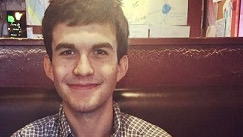Philosophy Work in Progress - Caleb Kendrick /

Philosophy Work in Progress - Caleb Kendrick /
Wednesday October 4, Philosophy PhD student Caleb Kendrick presents some work in progress, on the interaction of conditionals and deontic versus epistemic modality. An abstract follows.
Default Premise Semantics and "If P, Ought P"
Many theories of how modals interface with conditionals incorrectly predict that the deontic conditional "if P, ought P" is trivially true; however, these theories do correctly predict that the epistemic conditional "if P, must be P" is trivially true. We propose a simple solution to the puzzle: deontic and epistemic conditionals are sensitive to different kinds of reasons. The fact that P is true is not itself a reason for doing P; however, the fact that P is a reason for believing P. We make this intuition precise by drawing on Cariani's (2023) default premise semantics which integrates a Kratzer-style (1981, 1991) premise semantics for conditionals with default logic (Reiter 1980; Horty 2007, 2012). We show that the resulting theory can account for many puzzles including Carr's (2014) "self-frustrating oughts," and Kolodny and MacFarlane's miners paradox.

